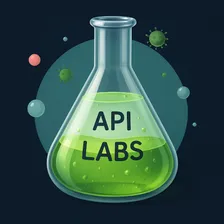YouTube Downloader
Pricing
Pay per usage
YouTube Downloader
All-in-One YouTube Downloader: Easily integrate our affordable solution into your application to download high-quality videos, audio, and music from YouTube. Enjoy customizable formats and quality options, all at a cheaper price compared to other tools.
Pricing
Pay per usage
Rating
0.0
(0)
Developer

ApiLabs
Actor stats
4
Bookmarked
37
Total users
0
Monthly active users
5 months ago
Last modified
Categories
Share
YouTube Downloader API
Overview
The YouTube Downloader API provides a powerful and flexible solution for downloading videos, audio, and music from YouTube. With support for multiple formats like MP3 and MP4, users can choose their desired quality option for the best media experience. This all-in-one downloader is perfect for developers looking to integrate seamless media downloading capabilities into their applications.
Features
- Download Video: Fetch and store high-quality videos from YouTube.
- Download Audio: Extract and save audio tracks in various formats, including MP3.
- YouTube Music: Access and download music videos directly from YouTube.
- Format Options: Choose between MP3 and MP4 formats for your downloads.
- Quality Selection: Select your preferred quality for downloads to ensure the best experience.
Input Parameters
The API accepts the following input parameters:
- url: The URL of the YouTube video or audio content to download.
- quality: The desired quality option for the download (e.g., 720p, 1080p, etc.).
- onlyAudio: A boolean flag (
true/false) indicating whether to download audio only. - useFFmpeg: A boolean flag (
true/false) to specify if FFmpeg should be used for processing. - proxy: (Optional) The proxy URL to be used for the download.
Note: Using a proxy is recommended to avoid being blocked by YouTube. However, it may increase download times. If you experience any issues, consider changing your proxy.
Important Notes
-
Proxy Usage: If you are using a proxy, please ensure that it is correctly configured and you are using a reliable proxy group. This will help avoid IP blocking by YouTube.
-
QuickTime Note for Mac Users: If you are using macOS, the downloaded video may not work properly with QuickTime Player due to codec issues. In such cases, use a different media player like VLC, or convert the file format using a tool like FFmpeg.
-
Video and Link Storage: Every time the API runs:
- The video download link is stored in one dataset.
- The actual video is stored in another dataset, enabling easy access and management of the media files.
Output
Upon a successful request, the API stores an item in the dataset the following format:
Usage Example Python
The following example shows an full example of usage from running an actor to downloading the video on your device.

